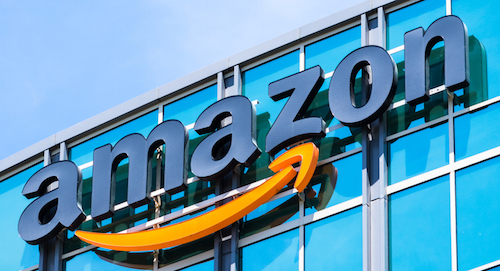Amazon may be liable for injuries caused by defective products sold by third-party vendors, court rules

Image from Shutterstock.com.
A California appeals court ruled Thursday that Amazon can be held strictly liable for injuries caused by defective products sold by third-party vendors through its online marketplace.
The California Court of Appeal’s Fourth Appellate District said Amazon can be liable for a defective laptop battery that exploded, burning the plaintiff, Angela Bolger of San Diego. The court said its holding was based on the circumstances of the case.
The Aug. 13 decision is the “first of its kind in the nation and the only published ruling holding Amazon liable in this situation,” according to a press release.
The battery seller, Lenoge Technology (HK) Ltd., was participating in Amazon’s “fulfilled by Amazon” program. Sellers opting into the program ship their products to Amazon warehouses, and Amazon then ships the product to the buyer. Amazon controls the packaging for shipment. Customers who return products to sellers participating in the program return it to Amazon, rather than the seller. Sellers in the program pay extra fees for storage and fulfillment.
“Amazon set the terms of its relationship with Lenoge, controlled the conditions of Lenoge’s offer for sale on Amazon, limited Lenoge’s access to Amazon’s customer information, forced Lenoge to communicate with customers through Amazon, and demanded indemnification as well as substantial fees on each purchase,” the appeals court said. “Whatever term we use to describe Amazon’s role, be it ‘retailer,’ ‘distributor’ or merely ‘facilitator,’ it was pivotal in bringing the product here to the consumer.”
The court said Amazon is not protected by the Communications Decency Act of 1996, which shields websites from liability for publishing third-party content.
“It does not apply here,” the appeals court said, “because Bolger’s strict liability claims depend on Amazon’s own activities, not its status as a speaker or publisher of content provided by Lenoge for its product listing.”
Lenoge used the name “E-Life” on the Amazon website. Bolger had also sued Lenoge, which didn’t appear in the case. A trial court entered a default judgment against the company.
Bolger was represented by CaseyGerry, a San Diego-based law firm.
“It is impossible to overstate the magnitude of this ruling,” said CaseyGerry partner Jeremy Robinson in the press release. “Consumers across the nation will feel the impact of this.”
Law.com and USA Today also had coverage.
Write a letter to the editor, share a story tip or update, or report an error.


